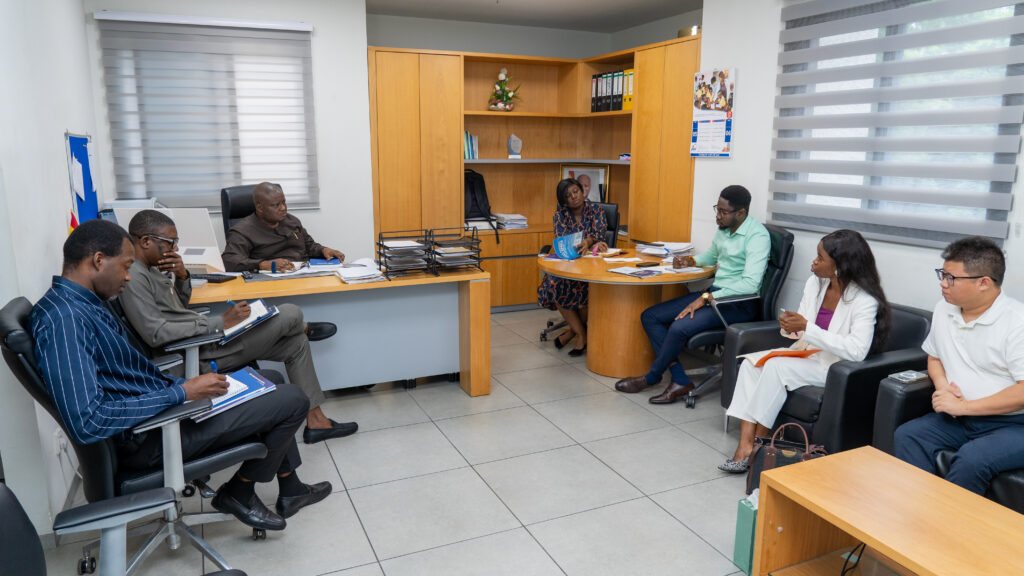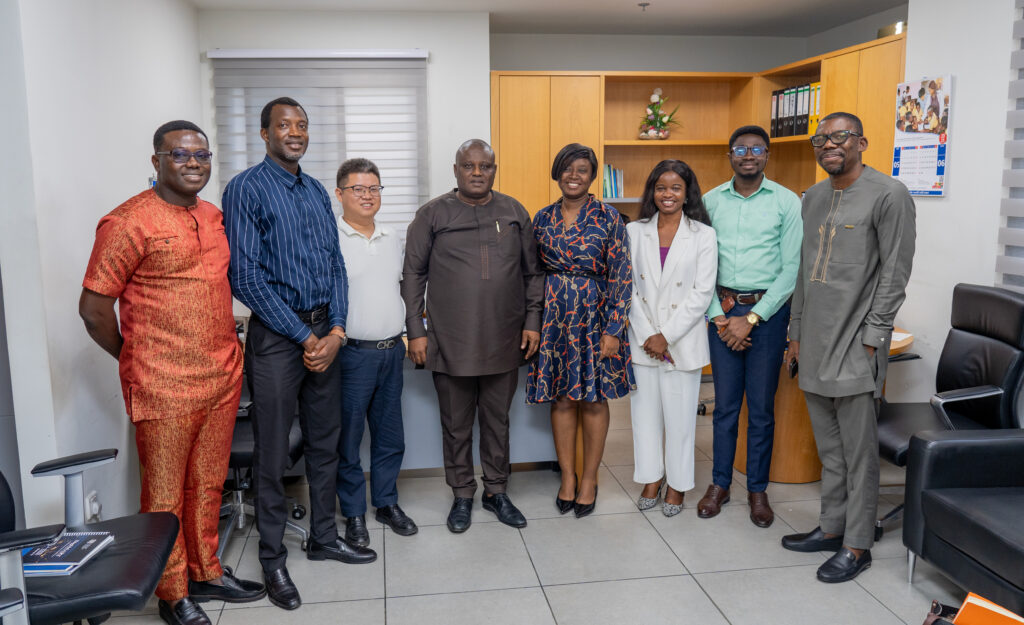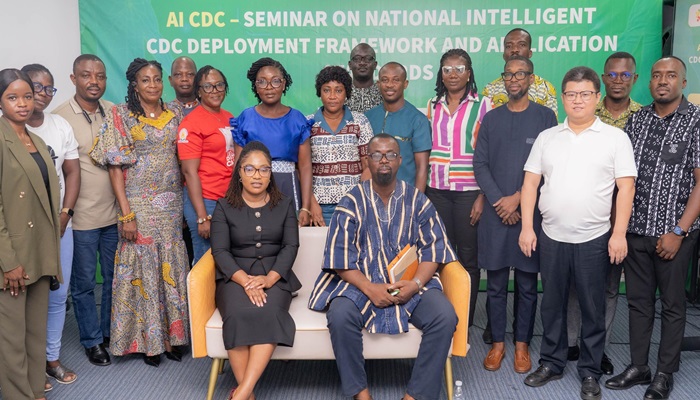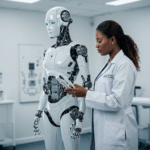On June 9, 2025, the Health Community of West Africa Association (HCOWAA) convened with Ghana’s Ministry of Health in Accra to initiate discussions on a landmark partnership aimed at integrating advanced artificial intelligence solutions into the national healthcare framework.
Hosted under the auspices of the Ministry’s Acting Chief Director, Frank Raji, alongside his Deputy, and HCOWAA’s leadership team, including Chief Director David Tai and Secretary Believe Domor, this meeting marked a concerted effort to harness AI for improved medical efficiency, disease control, and the modernization of traditional medicine practices across Ghana’s health sector.
HCOWAA outlined a visionary blueprint for establishing an AI-Powered Department in medical facilities nationwide. Central to this proposal is the deployment of smart diagnostic systems capable of leveraging big data analytics and cutting-edge computational infrastructure.
By automating the analysis of patient records, laboratory results, and real-time vital signs, these systems promise to enhance diagnostic accuracy and expedite clinical decision-making. HCOWAA also emphasized the potential for surgical robots to support minimally invasive procedures, thereby reducing patient recovery times and expanding access to advanced surgical interventions in hospitals that currently lack specialist surgeons.

Recognizing the acute shortage of radiologists and imaging specialists in many regions, HCOWAA proposed an AI-Powered Medical Imaging System tailored to assist hospitals with limited staff. Through a centralized
server architecture, medical images, ranging from X-rays and CT scans to MRIs, would be uploaded for remote analysis by expert radiologists. AI-driven automation would pre-process these images, flagging anomalies and generating preliminary diagnostic reports that local doctors could review and validate. This approach aims to bridge geographical disparities in specialist availability and deliver faster, more reliable imaging services to under–served communities.
In a novel fusion of ancient knowledge and modern technology, HCOWAA presented its AI-Powered Traditional Medicine initiative. Drawing inspiration from the successful integration models of Traditional Chinese Medicine, this component would establish a big data learning center dedicated to indigenous Ghanaian healing practices.
By digitizing herbal formulations, treatment protocols, and patient response data, the system could apply machine learning to identify effective combinations, optimize dosages, and predict treatment outcomes. This initiative aspires not only to preserve Ghana’s rich ethnobotanical heritage but also to validate and refine traditional remedies through rigorous data analysis.
The meeting further addressed the urgent need for robust disease surveillance and rapid response mechanisms. HCOWAA’s AI-Powered National Disease Control system would enable real-time monitoring of epidemiological trends, leveraging predictive analytics to forecast outbreaks before they escalate.
Decentralized testing centers, equipped with AI-supported diagnostic tools, would feed data into a national dashboard, alerting health authorities to emerging threats and guiding resource allocation. By automating pattern detection and risk modeling, Ghana could strengthen its pandemic preparedness and mount targeted interventions with unprecedented speed and precision.
Equally critical to patient outcomes is the seamless management of medical supplies. HCOWAA proposed an AI-Powered Medical Supply Chain designed to optimize inventory levels, forecast demand, and minimize waste.
Advanced algorithms would analyze consumption patterns, seasonal variations, and logistical constraints to ensure timely distribution of medicines, vaccines, and consumables. This system could dramatically reduce stockouts in remote clinics and enhance the overall resilience of Ghana’s healthcare logistics network.
Throughout the discussions, Ministry of Health officials expressed strong enthusiasm for HCOWAA’s multi-pronged approach. According to the Ministry, “The Ministry of Health commended HCOWAA’s innovative approach and affirmed its

commitment to further discussions on formalizing a partnership”. This endorsement underscores the government’s recognition of AI as a transformative force capable of addressing longstanding challenges in diagnostics, treatment access, and health systems management.
As both parties agreed to pursue formal agreements, attention now turns to the practical steps required to operationalize these proposals. Key considerations include establishing governance frameworks for data privacy and security, developing training programs to upskill healthcare workers, and piloting AI solutions in selected hospitals and districts. Stakeholders also highlighted the importance of securing sustainable funding; through public budgets, private investments, or development partners, to underwrite the computational infrastructure and specialist expertise essential for deployment at scale.
The HCOWAA-Ministry of Health dialogue represents a critical juncture in Ghana’s pursuit of a data-driven, patient-centered health system. By combining global best practices in AI with local insights and traditional knowledge, this partnership could serve as a model for other West African nations confronting similar healthcare gaps. As Ghana embarks on this ambitious journey, the promise of improved treatment outcomes, streamlined operations, and empowered communities looms large, signaling a new era in which technology and heritage converge to redefine the art and science of healing.
Source: HCOWAA and Ghana’s Ministry of Health Discuss Strategic AI Partnership – Health Pulse



